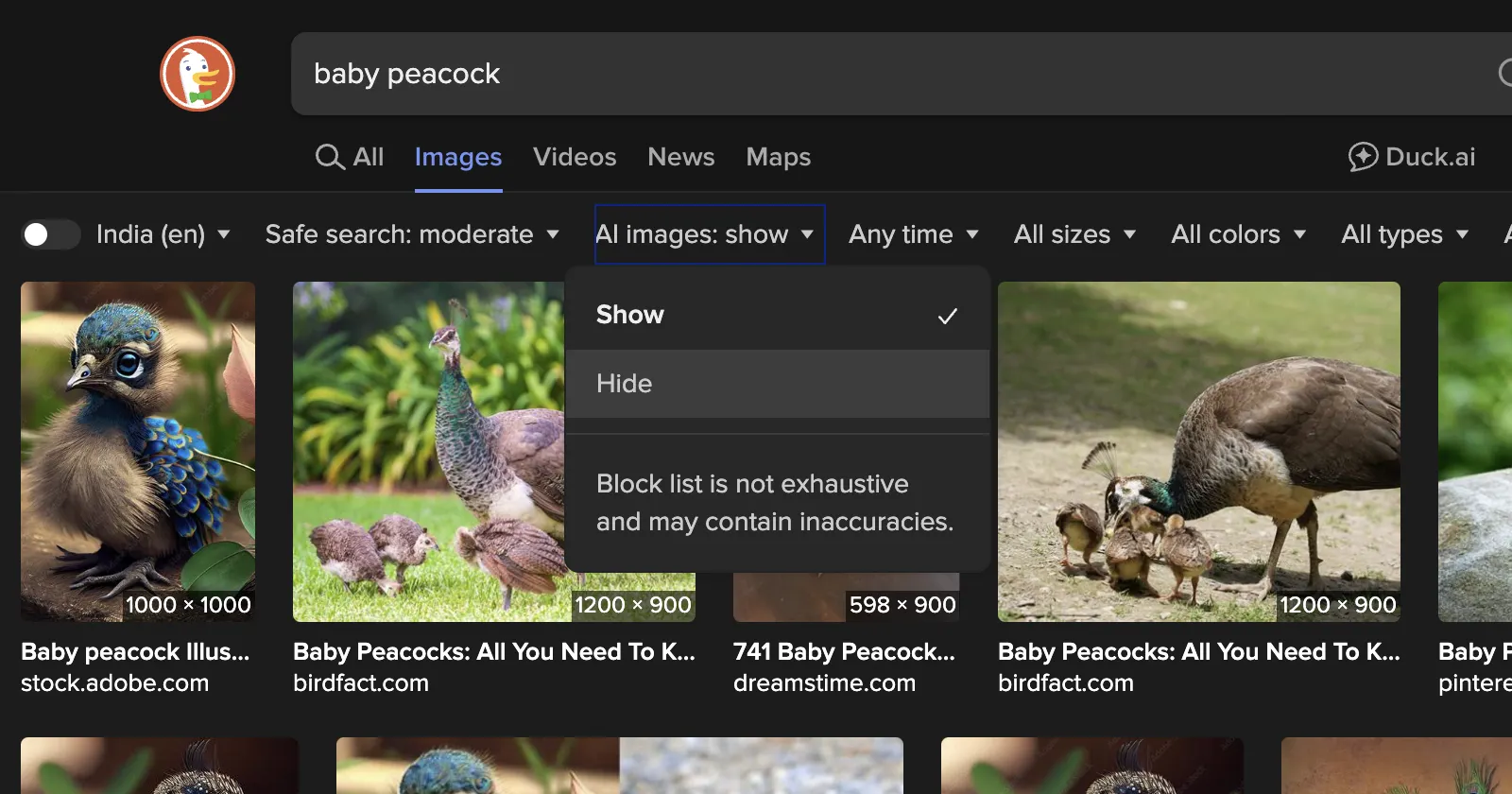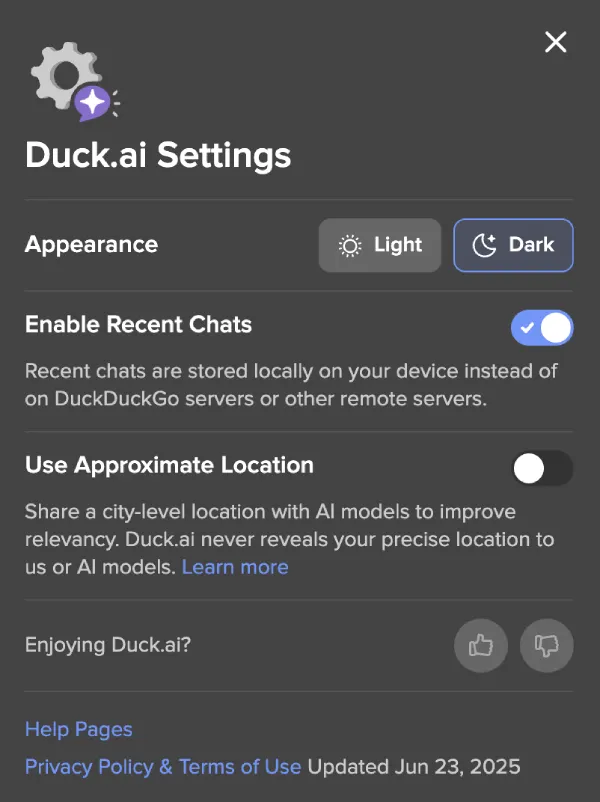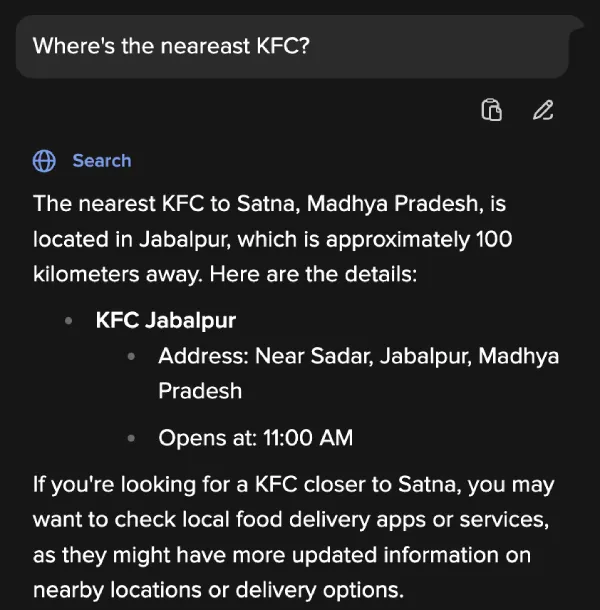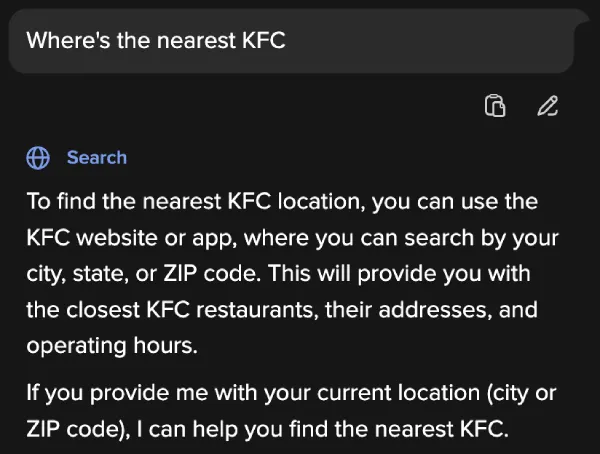In a world where AI is popping up everywhere online, it’s getting harder to tell what’s real and what’s generated by machines. Search engines are no exception, with results sometimes cluttered by synthetic images that can feel more like noise than helpful content. But not every platform is turning a blind eye to this mess. DuckDuckGo seems to have been listening to user feedback on the issue.
They’ve now rolled out a new built-in option that lets you filter out AI-generated images right from their image search tab. This option really puts you in the pilot’s seat for your web experience by giving you control over AI content.
What makes this feature stand out is that DuckDuckGo appears to be the first mainstream search engine to bake in such an AI image filter natively. Just last year, I went on a quest to figure out ways to eliminate AI articles and images from Google Search with only a little success. So this move from DDG is something that folks like me would appreciate.
You can toggle it on via a simple dropdown in the Images tab, choosing to “hide” AI images. Behind the scenes, it draws from open-source blocklists like those from uBlock Origin and uBlacklist to flag and remove synthetic content.
New setting: hide AI-generated images in DuckDuckGo
Our philosophy about AI features is “private, useful, and optional.” Our goal is to help you find what you’re looking for. You should decide for yourself how much AI you want in your life – or if you want any at all. (1/4) pic.twitter.com/pTolmsEQlQ
— DuckDuckGo (@DuckDuckGo) July 14, 2025
It’s not foolproof, so it won’t catch every single AI image, but it does a solid job of reducing the flood. For those who want even more convenience, you can bookmark noai.duckduckgo.com.
This update ties in nicely with DuckDuckGo’s broader push for privacy in their AI tools. Remember when their CEO talked about tightening up Duck.AI’s privacy controls? As I covered in a previous piece on TechIssuesToday, there were plans to give users more say over how their data interacts with AI models.
Well, they’ve delivered on that promise with a new setting that lets you prevent the AI from accessing your location data. It’s a small but important tweak, especially for folks worried about unintended tracking in AI chats.
The privacy switch for Duck.AI means you can chat with models without worrying about location pings slipping through. It’s optional, of course, keeping with their “private, useful, and optional” mantra for AI features. But keep in mind that it’s enabled by default.
One Reddit user shared their relief about the privacy toggle, saying: “Finally they added this switch… a recent post where another user was concerned about the AI model knowing their location.”
In my brief testing, it worked as expected. For reference, I asked it, “Where’s the nearest KFC?” before disabling the location-sharing toggle. Duck.AI thought I was in a different city (close to the actual city), but it did mention the nearest KFC, which is in the city I’m actually located in.
Then, I toggled off the “Use Approximate Location” setting and tried again. This time around, it didn’t even know my country and just responded with, “To find the nearest KFC location, you can use the KFC website or app, where you can search by your city, state, or ZIP code. This will provide you with the closest KFC restaurants, their addresses, and operating hours.”
These changes come at a good time, as more people question the role of AI in everyday tools. DuckDuckGo isn’t trying to eliminate AI entirely — they offer features like AI-assisted summaries and chats — but they’re giving users the reins to decide how much they want. If you’re fed up with search results feeling artificial or concerned about privacy in AI interactions, this update might just make DuckDuckGo your new default.
TechIssuesToday primarily focuses on publishing 'breaking' or 'exclusive' tech news. This means, we are usually the first news website on the whole Internet to highlight the topics we cover daily. So far, our stories have been picked up by many mainstream technology publications like The Verge, Macrumors, Forbes, etc. To know more, head here.





